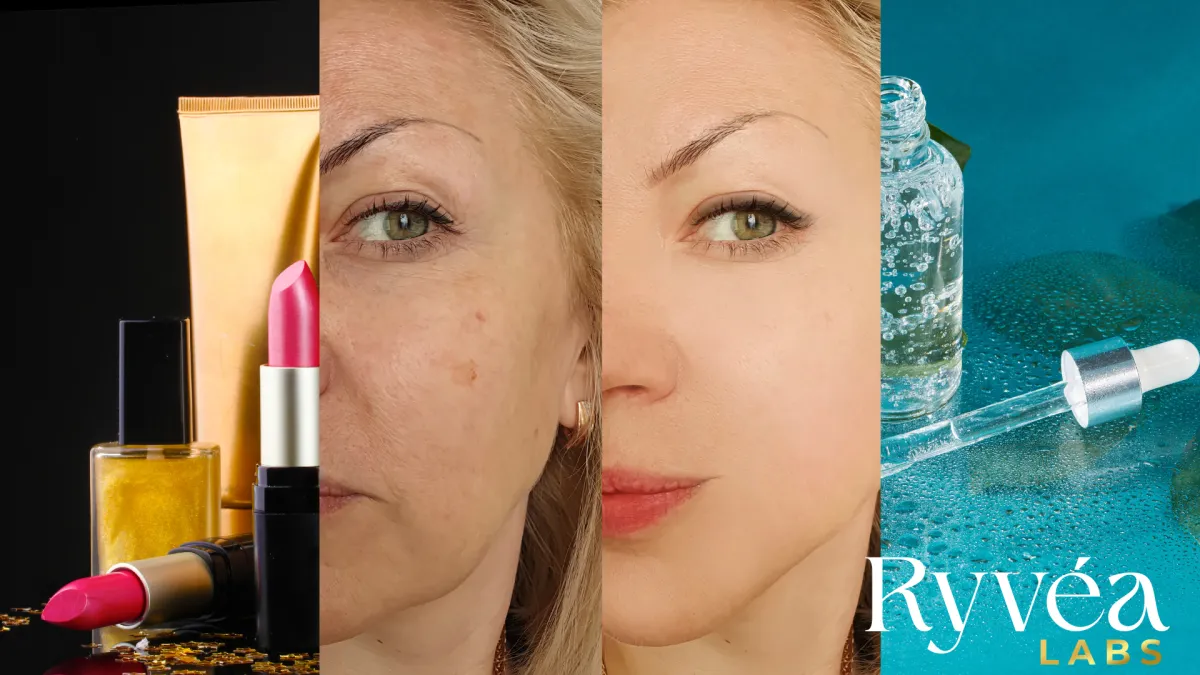
The Rise of Cosmetic Peptides: Can They Really Improve Your Skin?
The Rise of Cosmetic Peptides: Can They Really Improve Your Skin?
“Peptides are one of the most promising ingredients in skin science. They can signal the skin to produce more collagen, improve hydration, and support repair.”
Disclaimer: This is a publicly sourced quote, used for educational context only. (Dr. Whitney Bowe, Dermatologist)

Introduction
From anti-aging serums to luxury moisturizers, cosmetic peptides are showing up everywhere in skincare. But are they just a trend—or do they actually work?
In this article, we’ll break down what cosmetic peptides are, how they may support healthier skin, and what the science says about their effectiveness. If you're curious about achieving smoother, firmer skin with a science-based approach, this is the guide for you.
What Are Cosmetic Peptides?
Cosmetic peptides are short chains of amino acids designed to send specific signals to your skin cells. Many of them mimic the body’s natural processes, like collagen production or inflammation regulation.
Unlike large proteins that sit on the skin’s surface, some peptides are small enough to penetrate the outer layer and trigger action at a deeper level.
Intro to cosmetic peptides:
NIH – Peptides in Dermatology
How Peptides May Benefit Skin
Peptides in skincare products are formulated to support a variety of skin functions. Here are some of the most studied benefits:
Collagen Boosting: Certain peptides may signal the skin to produce more collagen and elastin, which helps reduce fine lines and firm the skin.
Moisture Retention: Some peptides improve the skin’s barrier function, helping it retain hydration.
Soothing & Repair: Others may calm inflammation or support wound healing, making them valuable for sensitive or damaged skin.
Pigment Regulation: Some peptides help regulate melanin, potentially supporting a more even skin tone.
These effects depend on the type of peptide, the formulation, and how consistently the product is used.
For ingredient reviews:
Healthline – How Peptides Work in Skincare
Common Types of Cosmetic Peptides
Here are a few popular peptides you may see on ingredient labels:
GHK-Cu (Copper Peptide): Studied for its ability to improve skin firmness, elasticity, and repair.
Matrixyl (Palmitoyl Pentapeptide): A well-researched peptide blend that may help smooth wrinkles.
Argireline (Acetyl Hexapeptide-8): Often called “Botox in a bottle,” it targets facial tension and fine lines.
Oligopeptides & Polypeptides: General terms for various amino acid sequences that may support collagen synthesis and moisture retention.
More on GHK-Cu:
PubMed – Copper Peptide in Wound Healing and Skin
Do Peptides Actually Work?
Research suggests that some peptides can be effective, especially when formulated properly and combined with other skin-supporting ingredients (like hyaluronic acid or antioxidants).
However, not all products are created equal. The delivery method (cream, serum, patch), concentration, and supporting ingredients all affect how well a peptide can perform.
It's also important to set realistic expectations—peptides may support healthier skin over time, but they are not instant fixes.
Overview of clinical trials:
Harvard Health – The Science Behind Peptides in Skincare
Are Cosmetic Peptides Safe?
Yes, most cosmetic peptides are considered safe when applied topically and used as directed. They are:
Non-invasive
However, as with any skincare product:
Avoid mixing strong actives unless recommended by a dermatologist
Stick with trusted brands that test for purity and quality
What to Look for in a Peptide Skincare Product
When shopping for peptide-based skincare:
Look for supporting ingredients like niacinamide, ceramides, or hyaluronic acid
Be cautious of overpromising marketing claims
Download Our Free Peptides 101 Ebook
Conclusion – Can Peptides Improve Skin?
Cosmetic peptides aren’t a miracle—but they’re far from hype. Backed by growing clinical research, they offer a gentle, science-supported way to help support collagen, repair skin, and improve hydration.
If you’re looking for smarter skincare that respects your biology, peptides may be worth exploring—with patience, consistency, and quality formulations.
Final Thoughts
At Ryvéa Labs, we believe in education-first skincare. Cosmetic peptides represent a thoughtful blend of modern science and skin biology—but they work best when used with realistic expectations and proper care. Explore responsibly, ask questions, and let science guide your glow.
